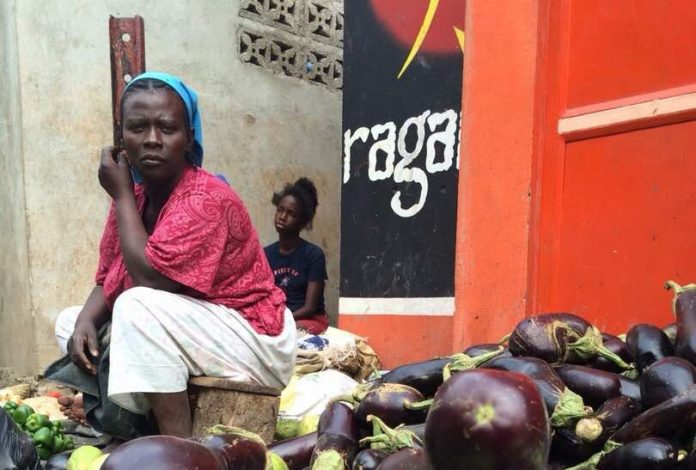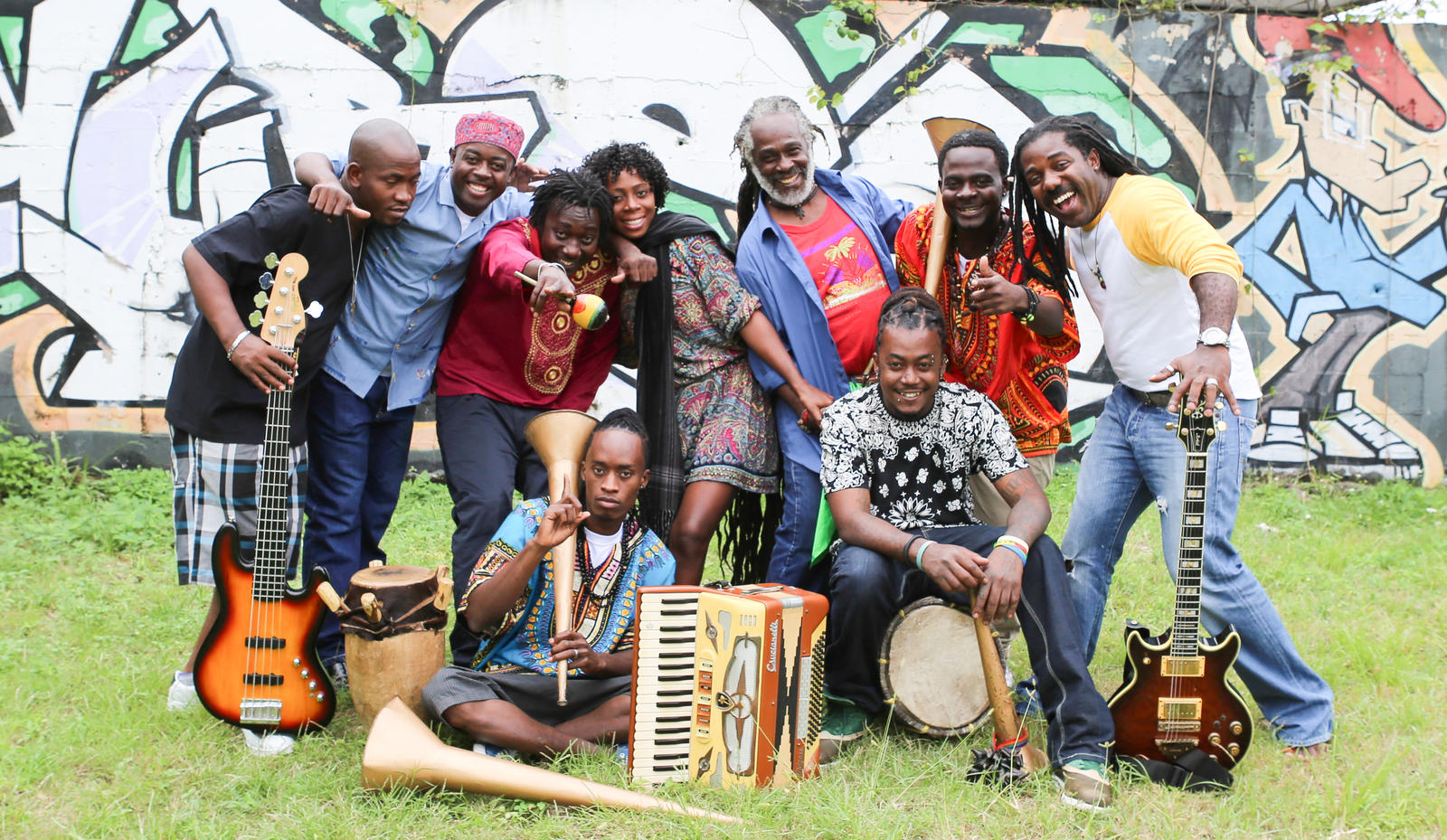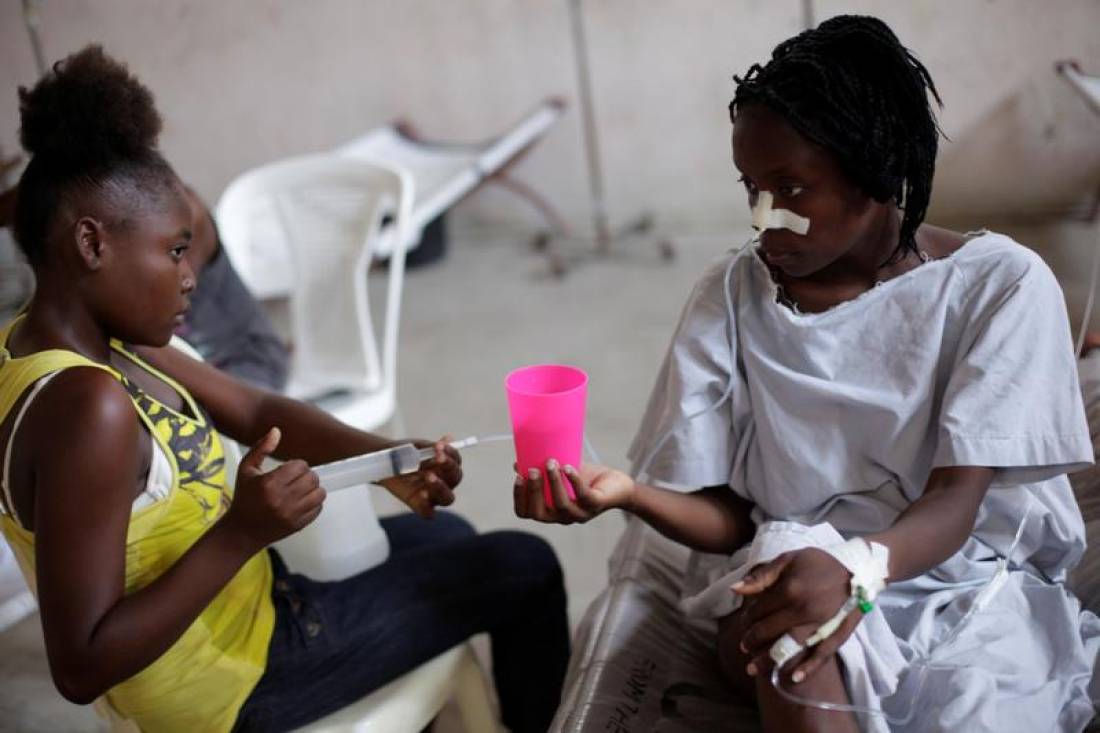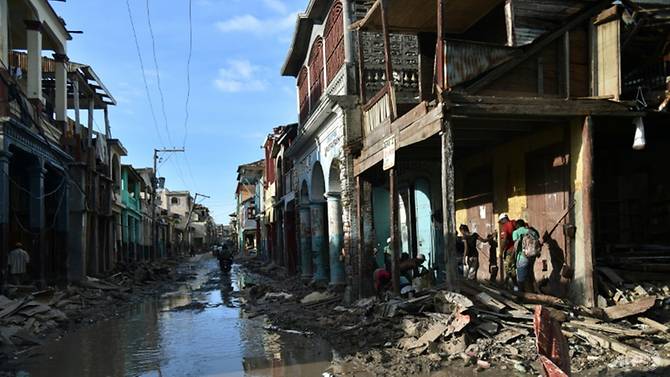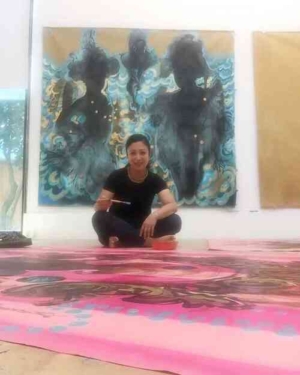Madan Sara is a film about the power of Black women in a global economy and their contributions that too often go unacknowledged.
The new film Madan Sara begins and ends with writing by acclaimed writer and MacArthur “genius” Edwidge Danticat. Reading an excerpt from her first novel, Breath, Eyes, Memory translated into Kreyòl, Danticat recites in her trademark measured and melodious voice:
“There is a place where women live near trees that, blowing in the wind, sound like music … These women, they are fluttering lanterns on the hills, the fireflies in the night … There is always a place where women, like cardinal birds return to look at their own faces in stagnant bodies of water … Where women return to their children as butterflies … My mother was as brave as stars at dawn.”
Like the passage that introduces it, the documentary Madan Sara focuses on the lives of Haitian women who are simultaneously ordinary and extraordinary.
“To talk about Madan Sara is to talk about Haitian women,” according to the filmmaker Etant Dupain. As the film makes clear, it is also to talk about pressing issues like structural violence, government failures and resistance to neoliberalism that resonate throughout the Global South.
When I asked him about his vision, Dupain said he saw Madan Sara as a “different way to introduce people to Haiti.” He accomplished just that in a series of bright, stunning, visually captivating images that convey an atmosphere of abundance.
The ubiquitous poverty trope regularly used to describe Haiti is notably absent from the narrative. Instead, copious amounts of produce—piles of mangoes, loads of cabbage, bunches of bright orange carrots—are present in almost every shot, disabusing the viewer of the idea that Haiti is only a place of lack. The vibrant atmosphere of the marketplace infuses the film with energy as the beauty and fecundity of the land take center stage. Early in the film, a mouth-watering variety of produce appears, as if Dupain is inviting us to sit at an exquisite Haitian table of fruits and vegetables.
Indeed, Madan Sara is a story of abundance. The documentary focuses on two “madan sara”—business women who purchase, distribute and sell food and other essential items in Haitian markets. As the Haitian economist Camille Charlmers explains, “A madan sara is a person who specializes in commerce; they are pillars of the Haitian economy.” These women have mastered their profession, understand their worth in the global economy, and take pride in their craft.
“If you aren’t smart, you cannot be a madan sara,” Clotilde Achille explains.
Madan Sara explodes many of the binaries that the media has used to characterize Haiti: urban versus rural, rich versus poor, lack versus abundance. Seemingly simple in its focus, the documentary takes on a number of broader global issues: the history of Haitian agriculture, government corruption and neglect, resistance to a capitalist system that denies the collective.
When I asked Dupain how he managed to cover such an incredible range of topics, he explained, “It is impossible to talk about Madan Sara without understanding [this broader context because] their work is a resistance movement against neo-liberal policies.”

At the film’s premier in Port-au-Prince last month, the two main subjects, Clotilde Achille and Monique Metellus, appeared alongside filmmaker Dupain and shared their perspectives about the documentary. They were proud of the film and insistent on the need for more recognition and protection for women like them in Haiti and throughout the Global South.
One of the greatest contributions of Madan Sara is Dupain’s ability to center the women’s voices, perspectives and even policy recommendations to imagine a future in which the madan sara is no longer on the margins. After all, what sense does it make to marginalize those who are so central to the economy and the function if of the small island nation? To use the words of one scholar interviewed in the film, the madan sara keep the country running; there would be no Haiti without them.
One of the most striking contributions of the film is the critique of capitalism and U.S. influence over the Haitian economy. According to Chalmers, the Madan Sara system represents a socialist solidarity economy that is fundamentally anti-capitalist. There is an ethic of social justice that undergirds the entire documentary: As an example of the global machinations of gender, power and economics, the madan sararemind us of what the world is getting wrong—especially as it concerns Black women of the Global South.
Madan Sara raises salient points about women’s contribution to the global economy and enters into academic debates about the autonomy of rural women. As the Haitian feminist scholar and author Myriam Chancy has argued in Framing Silence: “Haitian women of the rural working class appear to have some power equity due to the fact that many are market women (handling booths at the market, money, trade) while their male counterparts work the fields.”
Perhaps this is why madan sara have also been ignored by the state and targeted with violence. About halfway through the documentary, the camera pans out to a wide shot showing plumes of smoke wafting from one of Port-au-Prince’s largest markets. The fire that tore through this market was far from an isolated case, in fact in 2018 five fires blazed through Haitian markets.
Crying out for help after seeing all of her commerce destroyed in a market fire, one madan sara shouts desperately, “We are asking for justice not peace!” To Dupain, the fires are a metaphor for the structural violence and injustice these women are subject to. It is also evidence of the government’s lack of compassion for the people.
Filmed over the last five years, Madan Sara, is also unabashed in its critique of Haitian president Jovenel Moïse and the political elite. At one point, footage of the PetroKaribe Mouvement protests contrasts what up until this moment had been a film dominated by the presence of women.
This feminist film is unequivocal in making the point that government neglect of the madan sara population results in their marginalization. Or, as one of the women featured puts it, “We aren’t safe in cars, homes, in the market”—emphasizing how the lack of security has deleterious effects that are exacerbated by the intersections of gender and class. Madan Sara makes clear that the government’s lack of support, investment and outright neglect is a form of structural violence that has resulted in widespread harm.
And yet, the film showcases the ingenuity, brilliance and steadfast nature of these women in a nuanced way. Extolling the perspicacity of madan sara, another expert opines: “They really know what they are doing. They need more support, sure, but they know what they are doing.”
So as much as Madan Sara puts Haitian agriculture and markets on display, it is ultimately a film about the power of Black women in a global economy and their contributions that too often go unacknowledged.
They represent hundreds of thousands of women engaged in daily practices that the state does not support, protect, or invest in. As Madame Monique explains to the viewers, Madan Sara se lekol li ye—The madan sara network is an entire school. It is an education about empowered women in the Global South who though they are overlooked by the government continue to press forward.
Towards the end of the film, Dominique Boyer, the CEO of Fonkoze, a non-profit organization that provides micro loans to Haitian women in commerce explains the connection of madan sara to all of Haitian culture. “Every Haitian has a madan sara story in their own family.”
Personally, this point struck home for me as I recalled the story of my paternal grandmother, who spent some of her life working as a madan sara. When I told my father—a physician living in Port-au-Prince—about the film, he shared childhood memories about accompanying his mother on some of her business trips. Like Etant Dupain, he understood the importance of madan sara’s contribution to his education, development and professional trajectory.
As Dupain expressed so eloquently, and with a touch of longing for home, “Madan Sara is ours. Madan Sara is Haiti.”
How to Watch Madan Sara
In honor of International Women’s Day, and in partnership with the University of Pennsylvania, the Madan Sara Project will be hosting a free public online screening of Madan Sara on March 8, 2021 at 6:00 pm EST. Spaces are limited, so reserve your spot today by following this linkto register for the event.
For more information on future film screenings and to support the efforts of the Madan Sara Project as they work to share the film across Haiti, please visit MadanSaraFilm.com.




























![Phyllisia Ross – KONSA [Official Music Video]](https://haitiville.com/wp-content/uploads/2014/08/phyliisia.jpg)
